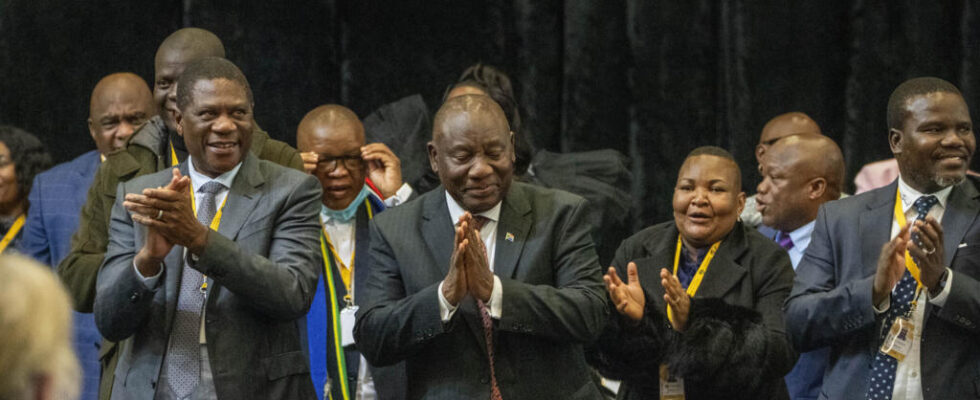After the election of South African President Cyril Ramaphosa, thanks to the votes of the opposition, the question of the stability of a coalition arises. We know that the Democratic Alliance, a liberal party, and the Inkatha Freedom Party, a conservative Zulu party, contributed their votes to the African National Congress (ANC), the ruling party. Can these parties which have opposed each other so much in recent years coexist?
3 mins
The coalition is a good thing and this is an ANC voter who says so. Ntuthulezo Mhlakaza, does not like the Democratic Alliance, but the association of the two parties can be positive. “ The Democratic Alliance has this agenda, the ANC has that agenda and now they have to find the right balance. Everyone must show humility to move the country forward. »
There will be progress provided the parties agree. Their relationship will quickly be put to the test, anticipates political scientist Asanda Ngoasheng. “ This will be at the time of the budget vote. The ANC says: race is an issue, the legacy of apartheid must be addressed. The Democratic Alliance says, race is not a topic, but class and socio-economic issues are. This is where conflict can arise. »
Other parties are called upon to form a national unity government, but their low weight risks marginalizing them within the coalition. Songezo Zibi, from the Rise Mzansi party, prefers to observe the coalition with distance and pessimism. “ Coalitions are always difficult and this one in particular. I don’t think in Ramaphosa’s camp he has enough allies to support such an arrangement. »
For now, President Ramaphosa didn’t need to compromise too much. But the formation of his government will be the true reflection of the new balance of power.
Jacob Zuma’s party boycotts the National Assembly
At the same time, the 58 deputies of the MK party of Jacob Zuma boycotted their swearing-in and therefore cannot participate in the work of the Assembly. However, the former president’s party caused a sensation during the elections of May 29 by becoming the third political force in the country, less than six months after its creation, obtaining 14% of the vote.
But the party never recognized the electoral results, denouncing fraud that it was unable to prove. Jacob Zuma, having campaigned by promising to obtain 66% of the votes, considers himself robbed. Consequently, its deputies are boycotting the National Assembly, depriving their voters of a voice in Parliament.
Jacob Zuma also thought he could govern the province of KwaZulu-Natal, his stronghold, where he obtained the most votes. But a coalition between the ANC and other parties deprives him of this key region. “ Any agreement excluding the MK party is a provocation to the people of KwaZulu-Natal and they should not be blamed if they react » warned Julius Malema, the leader of the Economic Freedom Fighters (EFF) party, support of Jacob Zuma.
These threats are not taken lightly: the province was marked by riots in July 2021 after the arrest of Jacob Zuma. “ Don’t look for trouble » the former president said recently. His words haven’t turned into action yet.
Press review AfricaIn the news: South African “national union”, between hopes and uncertainties
